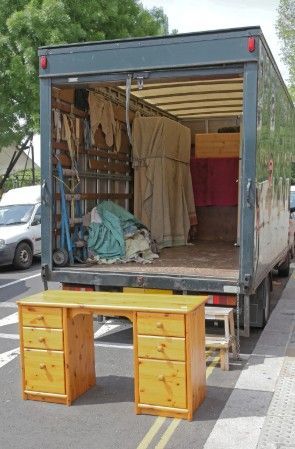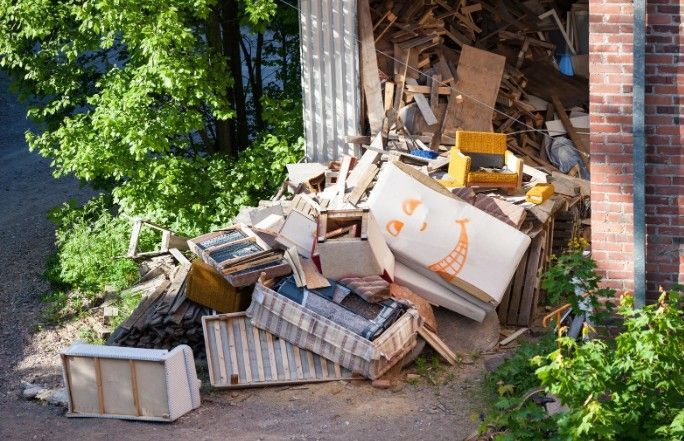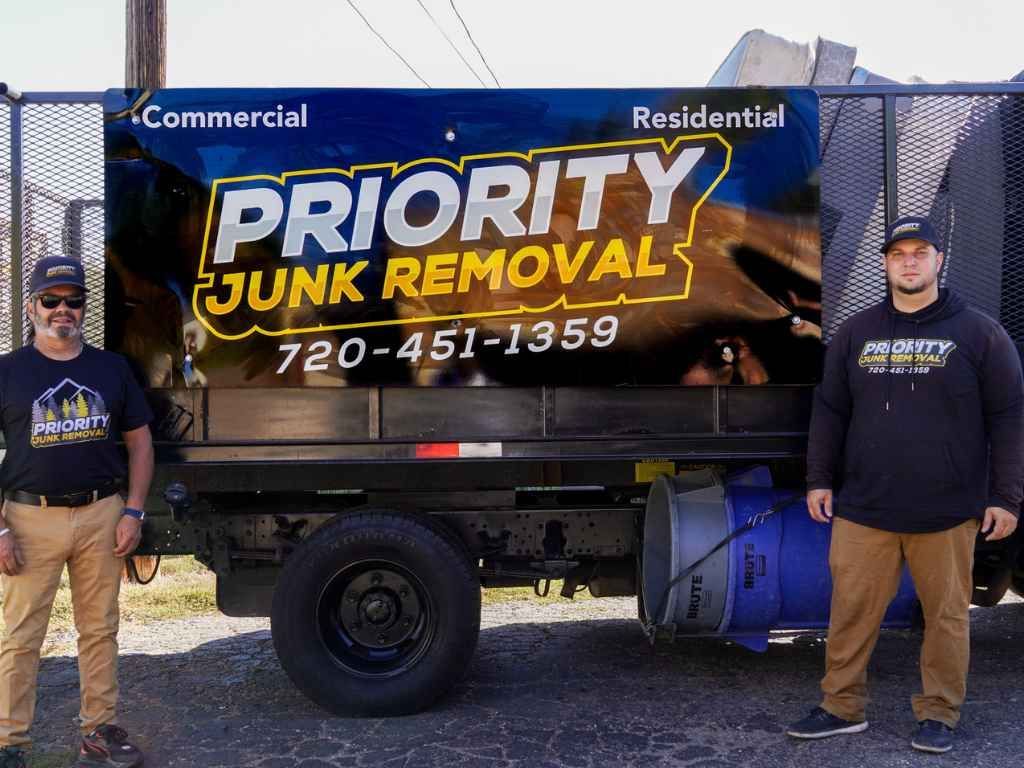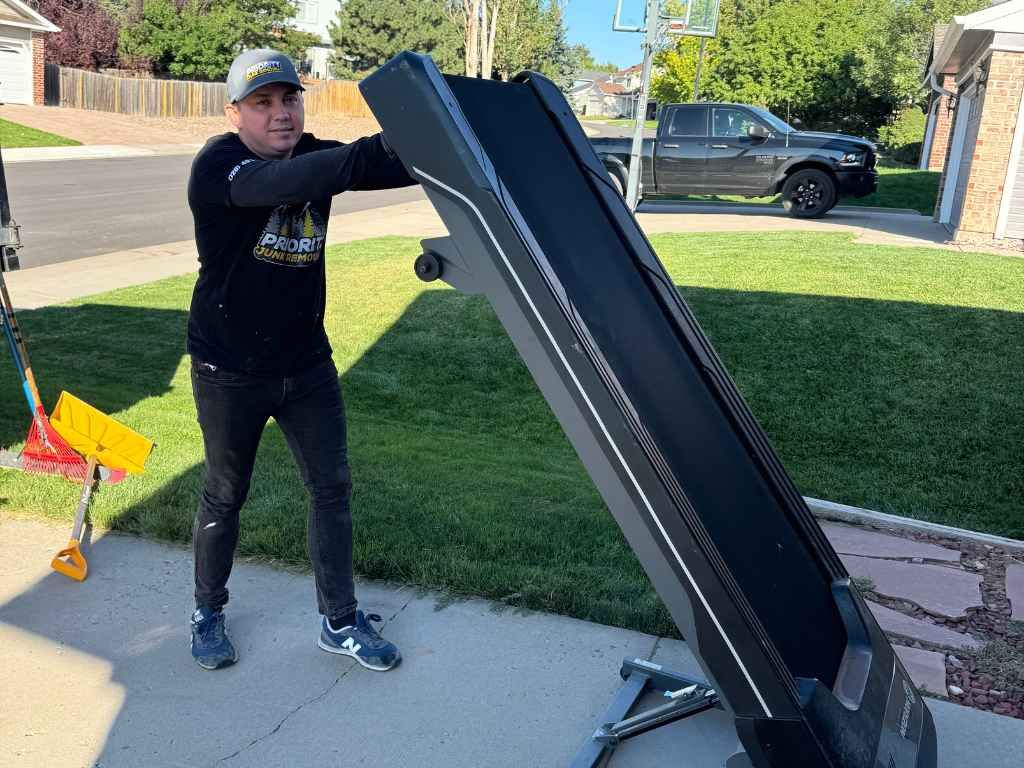How to Properly Dispose of Commercial Junk Items
Dealing with commercial junk can feel like trying to clean up after a tornado. Offices pile up with old chairs and desks, warehouses fill with broken machinery, and retail stores seem to collect mountains of outdated displays and packaging materials. If you’ve ever stood in the middle of a cluttered workspace wondering where to even start, you’re not alone. The key to managing commercial junk effectively isn’t just about hauling it away—it’s about knowing how to dispose of it responsibly, efficiently, and in compliance with local regulations.
Proper Disposal of Commercial Junk Matters
It’s easy to ignore that stack of broken office chairs in the corner or that pile of obsolete electronics gathering dust in the back room. But proper disposal of commercial junk isn’t just about aesthetics—it’s about protecting the environment, adhering to legal requirements, and promoting a healthier workspace.
Environmental Impact
Commercial waste often includes materials that don’t break down easily or contain hazardous components. Old electronics, for example, can leak heavy metals like lead and mercury into the soil and water if dumped in a landfill. Plastics, metals, and treated wood can take centuries to decompose, contributing to long-term environmental damage. Recycling and proper disposal reduce this burden, ensuring that reusable materials are processed correctly and hazardous substances are handled safely.
Legal and Regulatory Compliance
Most local governments have strict regulations on how to handle certain types of commercial waste. Improper disposal can lead to fines, penalties, or even legal action. For instance, electronics and hazardous materials must often be handled by certified disposal facilities. Knowing the rules and following them not only protects your business from legal trouble but also ensures you're contributing to a sustainable waste management system.
Health and Safety
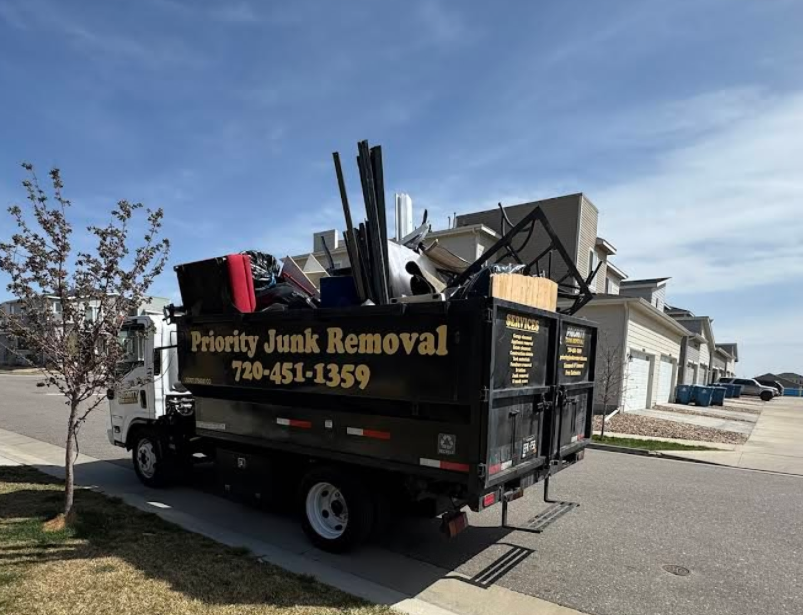
Accumulated junk creates more than just an eyesore—it becomes a safety hazard. Stacks of clutter can block emergency exits, increase the risk of fires, and harbor pests or mold. Employees working in a crowded, disorganized environment are also more likely to suffer injuries from trips, falls, or exposure to hazardous materials. Proper disposal helps maintain a safer and more productive workspace.
Expert Tips for Efficiently Handling Commercial Junk Removal
Managing commercial junk removal is more than just tossing unwanted items into a dumpster. It requires strategic planning and a clear understanding of how to dispose of different types of waste. From outdated office furniture to electronic waste, every material needs to be handled differently to avoid legal issues and environmental harm. Efficient junk removal helps businesses maintain a clean and organized workspace, which can improve productivity and employee morale. Taking the time to create a proper disposal plan can also save your business from unexpected fines and penalties due to improper waste management.
One of the most effective ways to manage commercial junk is by working with a professional junk removal service. Experts understand how to separate recyclable materials from hazardous waste and ensure that everything is processed according to local regulations. Partnering with a reliable removal company can help businesses reduce clutter quickly and responsibly, allowing you to focus on running your business without the distraction of accumulated junk.
Identify and Categorize Your Junk
The first step in tackling commercial junk is to figure out exactly what you’re dealing with. Not all junk is created equal, and different types of materials require different disposal methods.
Office Furniture and Equipment
- Desks, chairs, filing cabinets, and shelves can often be repurposed, donated, or recycled.
- Electronics like computers, printers, and phones should be sent to an e-waste recycling facility to prevent environmental contamination.
Construction and Renovation Waste
- Scrap wood, metal, and drywall can often be recycled or repurposed for other projects.
- Hazardous materials like asbestos, lead paint, and treated wood need to be handled by specialized disposal services.
Retail and Packaging Waste
- Cardboard, paper, and plastic packaging can usually be recycled through standard municipal programs.
- Display units and mannequins might be reusable or suitable for donation.
Hazardous and Chemical Waste
- Cleaning supplies, paints, and solvents must be disposed of according to hazardous waste regulations.
- Batteries, light bulbs, and electronics require specialized recycling processes.
Should Prioritize Responsible Commercial Junk Disposal
Ignoring commercial junk can lead to more than just an unsightly workspace—it can create long-term environmental and health problems. Piles of junk can harbor pests, mold, and bacteria, leading to poor air quality and increased health risks for employees. Additionally, electronic waste and hazardous materials like batteries and fluorescent bulbs can leak harmful substances into the environment if not properly disposed of. Businesses that take a proactive approach to junk removal help protect both their staff and the community from these potential dangers.
Responsible junk disposal also supports sustainability efforts. When materials are recycled or repurposed instead of being sent to a landfill, it reduces the strain on natural resources and minimizes pollution. Companies that adopt eco-friendly waste management practices demonstrate their commitment to environmental responsibility, which can enhance their reputation and appeal to environmentally conscious customers.
Separate Recyclables from Non-Recyclables
Once you’ve sorted out what you have, it’s time to separate recyclable materials from the rest. This step ensures that you’re maximizing recycling opportunities and reducing the load on landfills.
Common Recyclable Materials
- Paper and cardboard – Office paper, packaging, and boxes can be recycled easily.
- Plastics – Look for the recycling codes on plastics to determine if they’re accepted in local programs.
- Metals – Aluminum, steel, and copper can often be recycled at scrap yards.
- Electronics – Many electronics retailers and recycling programs accept e-waste for proper disposal.
Non-Recyclables
- Contaminated materials – Soiled paper or plastics with food residue often can’t be recycled.
- Mixed materials – Items made from a combination of materials (like plastic and metal) might require specialized processing.
- Hazardous waste – Chemicals, batteries, and fluorescent bulbs need to be handled through specific waste management programs.
Work with Professional Junk Removal Services
Let’s be real—disposing of commercial junk isn’t a DIY job for most businesses. The volume, weight, and complexity of commercial waste often require professional help.
Why Hire a Professional?
- Efficiency – Professionals know the fastest and safest ways to remove and dispose of large amounts of junk.
- Compliance – Licensed junk removal services understand local regulations and ensure your waste is disposed of legally.
- Equipment and Expertise – From lifting heavy furniture to handling hazardous materials, pros have the right tools and knowledge to get the job done right.
What to Look for in a Junk Removal Service
- Licensed and insured – Make sure the company is properly certified to handle commercial waste.
- Eco-friendly practices – Choose a service that prioritizes recycling and responsible disposal.
- Transparent pricing – Avoid companies that tack on hidden fees or vague estimates.
Consider Donation and Repurposing Options
Not everything you’re getting rid of belongs in a landfill. In fact, many commercial items can find a second life through donation or repurposing.
Office Furniture
- Nonprofit organizations and schools often accept used office furniture in good condition.
- Online platforms like Craigslist or Facebook Marketplace are great for offloading desks, chairs, and filing cabinets.
Electronics
- Refurbished electronics can often be donated to community centers or schools.
- Some manufacturers have take-back programs for old computers and printers.
Construction Materials
- Habitat for Humanity and similar organizations accept building materials for use in affordable housing projects.
- Leftover wood, metal, and fixtures can be sold or repurposed for creative projects.
Establish an Ongoing Junk Management Plan
Once you’ve cleared out the clutter, it’s time to prevent future junk buildup. An ongoing waste management plan helps keep your commercial space organized and reduces the need for massive cleanouts down the line.
Tips for Maintaining a Junk-Free Workspace
- Create a recycling station – Make it easy for employees to recycle paper, plastics, and metals.
- Schedule regular cleanouts – Set a calendar reminder to review and dispose of junk every quarter.
- Adopt a minimalist mindset – Limit new purchases and focus on quality, long-lasting office supplies and furniture.
- Educate your team – Encourage employees to be mindful about waste and recycling.
Key Mistakes to Avoid When Disposing of Commercial Junk
Many businesses make the mistake of treating all junk the same way, leading to improper disposal and potential legal issues. Electronics, for example, cannot be tossed into regular trash due to the toxic materials they contain. Failing to separate recyclables from hazardous waste can result in fines and environmental harm. Businesses that don’t take the time to categorize their waste often find themselves facing unexpected disposal costs and penalties.
Another common mistake is underestimating the volume of junk that needs to be removed. Attempting to handle large-scale commercial cleanouts without professional help can lead to injury, property damage, and inefficient disposal. Working with a licensed junk removal service ensures that all materials are sorted, transported, and disposed of correctly, saving businesses time and money in the long run.
Conclusion
Disposing of commercial junk isn’t just about hauling away the mess—it’s about doing it responsibly, efficiently, and with an eye toward sustainability. By sorting your junk, separating recyclables, and working with professionals, you can clear out the clutter while reducing your environmental footprint. Don’t forget about donation and repurposing options to keep usable items out of the landfill. And once the clutter is gone, a solid waste management plan will help keep it that way.
If you’re ready to tackle your commercial junk problem once and for all, reach out to Priority Junk Removal. Located at 6091 South Spotswood Street, Littleton, Colorado 80120, they specialize in fast, eco-friendly junk removal services tailored to commercial clients. Give them a call at 720-451-1359 or email them at priorityjunkremoval@gmail.com to schedule your pickup today. A cleaner, more organized business is just a call away!

